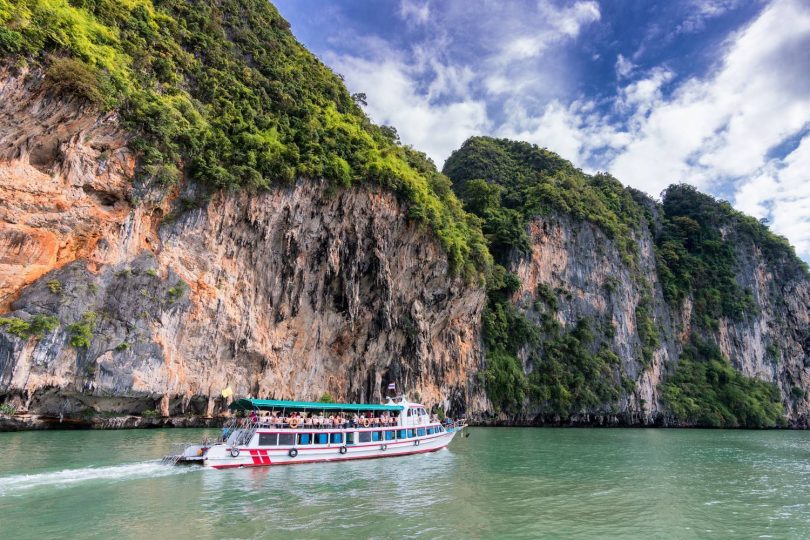In another bold move, Thailand’s ruling political party recently made the decision to decriminalize cannabis and hemp by removing them from their national scheduling, a list that currently includes more addictive drugs such as opium. This means greater freedom for those who consume cannabis recreationally or medicinally in the Southeast Asian country. It also means a steady increase in tourism for an already in-demand travel destination and well-known cannabis exporter.
Brief History of Cannabis in Thailand
Cannabis has historically always been seen through a less-critical lens socially in Thailand – ancient, holistic Thai remedies have included the plant for a long time. The smuggling of cannabis from Thailand to the U.S. was a common occurrence in the 1970s. Especially due to the appeal of numerous exotic cultivars of cannabis and hashish that included the world-famous “Thai stick”, native to the farms in the northeast of Thailand at that time.
Once the demonization of cannabis began to tie in with particular conservative interests here in the US during the Reagan administration of the 1980s, governments in countries like Thailand followed suit in determining that cannabis as a whole was a moral and societal wrong worthy of severe punitive action. This period in Thailand’s history is synonymous with lengthy smuggling sentences and harsh sentences for tourists caught with small amounts of cannabis.
However, as mentioned, Thailand managed to find its way out of the darkness. In 2020 the Thai government began to allow cannabis cultivation and its consumption for medical purposes due to the relentless campaigning by the country’s Bhumjai Thai party. Fast forward to 2022 and the same, non-liberal ruling party has made another somewhat uncharacteristic move for complete decriminalization with legalization presumably on the horizon.
What’s in the law?
The passing of this law and the medical law in 2020 signals not so much a newly-found, liberal approach to social freedoms by the the Bhumjai Thai party but is more so to generate a thriving commercial and farming industry for the country to take advantage of.
Legislators are still working out the framework of the new laws that should be taking effect at some point this late spring/early summer. However, as of now the determination is that all cannabis flower and seeds can be possessed and consumed. However extracts will, by and large, remain illegal other than cannabis oil for medical patients, with the most severely ill allowed to grow the plant at home.
Tourism
Exotic beach locales and ridiculously affordable cuisine and accommodations are just a few reasons why so many flock to Thailand each year for a vacation. Also a well-known party destination, the new lax regulations and commercial availability only serves to boost a Thai tourism industry that brought in a staggering $62B dollars before Covid-19 in 2019. With Covid travel restrictions lifted for travelers from all countries, the addition of legal cannabis with none of the harsh ramifications of old in place has Thailand primed to best that massive dollar figure this year and moving forward.
Thailand also has the distinction of being in the driver’s seat as far as Southeast Asian governments view cannabis. Typically anti-drug and sometimes draconian views tend to dominate this part of the globe, so the mere fact that Thailand is going the distance with decriminalization and legal accessibility is huge in changing outdated attitudes towards cannabis. Toss in a rich history of cannabis cultivation and production combined with endlessly exotic locales and Thailand may very well be the top pick for cannabis tourism anywhere in the world starting very soon.










